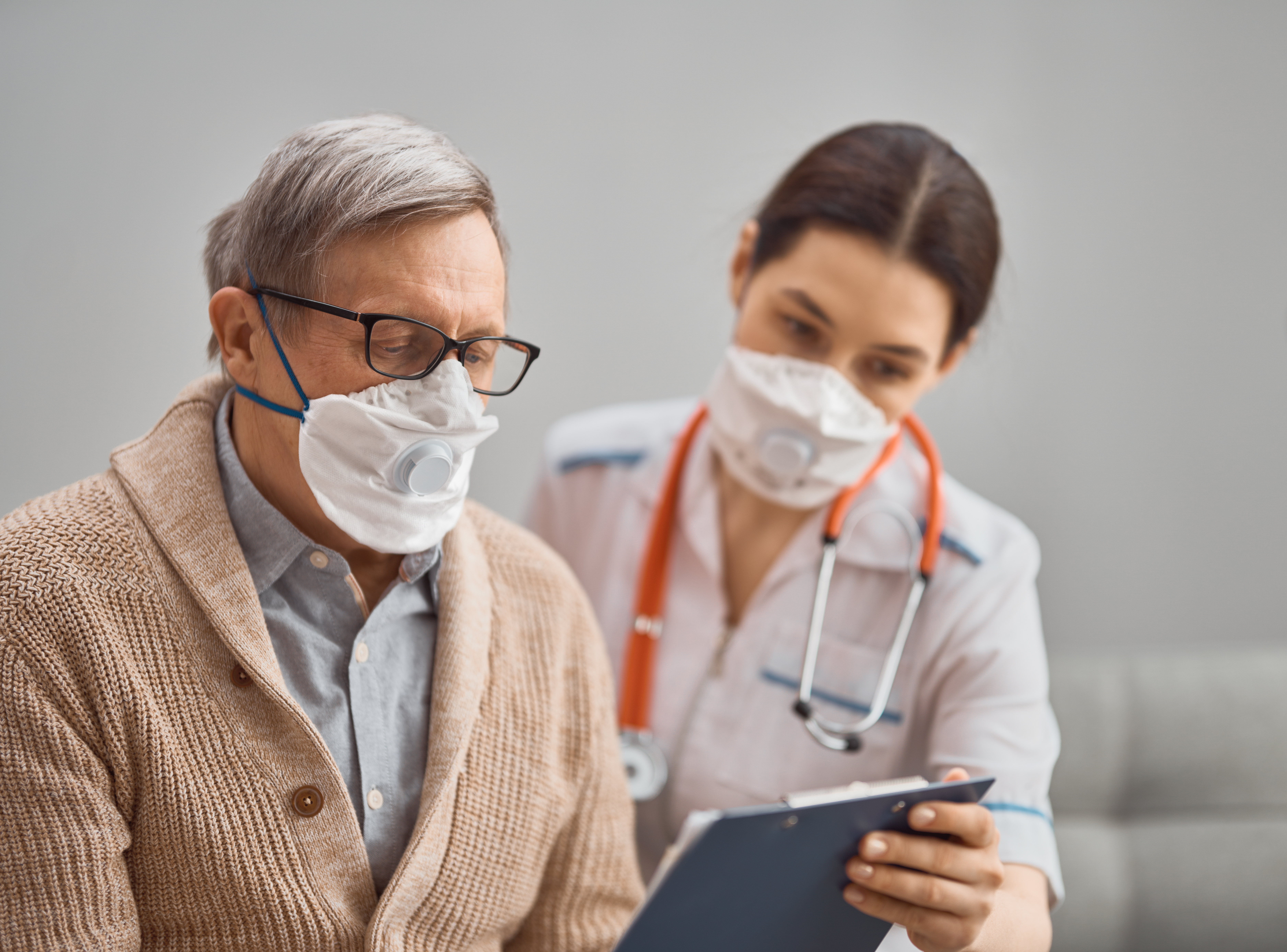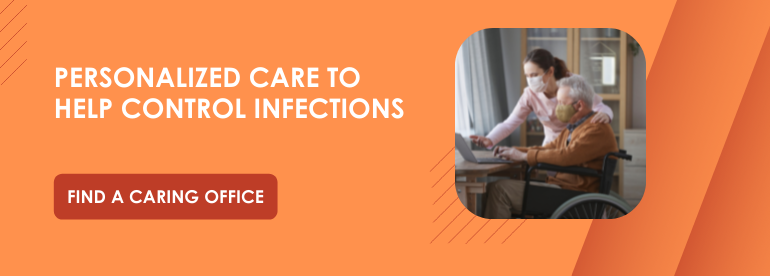With the virus sweeping the world, most of us are worried about catching COVID-19, and the statistics show that seniors are at higher risk. Specifically, risk goes up for people aged 65 years and older, and the risk may be even higher for those in long-term care facilities, which can have higher disease transmission rates. So, why are seniors more at risk of COVID-19, and what should you do about it?
The Risk for Seniors
It's worth mentioning that statistics do not indicate that seniors are at higher risk of catching COVID-19, but rather at higher risk of becoming critically ill or dying due to the virus. Younger people are just as likely to be infected as seniors, but they are more likely to experience mild symptoms similar to a bad cold or mild flu, or even no symptoms whatsoever — unless they have underlying health conditions.
This indicates that everyone should take precautions to avoid contracting COVID-19 — even if you are young and healthy — because of who you might give it to. A young person may contract the virus without knowing and pass it along to a senior.
Why Are Seniors at Higher Risk?
So, exactly why are older people at higher risk of serious complications? There are a number of reasons for this, including the following:
- Our immune systems tend to weaken with age. Just as seniors can get sicker from the flu or even a cold, they can get sicker from COVID-19. With a deteriorating immune system, seniors just aren’t as effective at fighting off the virus and combatting the symptoms as the younger population.
- Seniors are more likely to have the conditions considered risk factors. These factors include diabetes, heart disease, and chronic lung disease. Seniors who have recently had health treatments for cancer, renal failure, high blood pressure, and liver disease are also at high risk. Although younger people can also be affected and suffer from health risk factors, aging makes seniors more likely to have an underlying condition.
- Stress also lowers the immune system. Under the current circumstances, people in high-risk groups are more likely to stress about being infected, creating a vicious cycle.
- More seniors smoke, which is also known to be a risk factor. Many people started smoking and became addicted before the dangers of cigarettes were widely known. The lung damage caused by years of smoking makes COVID-19 especially dangerous to those who smoke.
Protecting Seniors
Right now, we need to protect our loved ones from COVID-19. In some states, people have been asked to stay home except for essential needs. Some stores open during special hours to accommodate just seniors. But as families, we are all worried and unsure what to do.
Your loved one should stay home as much as possible. While this may lead to social isolation, it's the best way to keep from being exposed to the virus. If your relative is in a nursing home or long-term care facility, it may be best not to visit them for now. Talk to the staff about finding a way to use teleconferencing to "visit."
If your loved one is still living independently, then here are some tips to help keep them safe and healthy.
- Limit the exposure your loved one has with other individuals. Avoid them if anyone in your household has respiratory symptoms, even if you think they're allergies. Talk with them using Skype or FaceTime instead; it's important to keep in touch and check on them, but COVID-19 may not manifest severe symptoms in younger individuals.
- If you do visit with an aging loved one, wash your hands immediately on arrival, or use hand sanitizer. It’s recommended to wash your hands with soap and water for at least 20 seconds.
- If you are assisting your loved one with shopping, maintain your distance from them. Buy their groceries and other essentials and leave them outside the door, then back off to at least six feet before they come out and get them. This is especially important if your store is not providing special hours for seniors.
- Avoid catching the disease yourself. Work from home if your job allows it. Utilize take-out food services and try to pay online to limit contact with other individuals. Wash your hands frequently. Don’t shake hands with anyone. Bear in mind that you can have it and have no symptoms, so social distancing is important.
- Make sure your loved ones have up-to-date flu and pneumonia vaccine. It is possible to catch flu and COVID at the same time, albeit unlikely.
- Make sure your loved ones have plenty to do while staying home. You can stop by with crossword books and other entertainment items, especially if your loved one is not good with digital entertainment. However, you should not play board games, even if healthy, as that involves a lot of close contact and touching of the same things.
- Ensure that they're monitoring themselves for symptoms. The most common symptoms of COVID-19 are a cough, fever, and shortness of breath. If your aging loved one does have symptoms, do not take them to the doctor, ER, or urgent care unless they have severe difficulty breathing or an actual emergency. Instead, call your health care provider and get instructions from them; some health care providers are having suspected COVID cases use a separate entrance so they aren't in the waiting room with other patients.
- Seniors may still require the assistance of others to remain safe and healthy at home. Communicate with home care professionals, like caregivers, to ensure that they are also taking precautions. You may request that your loved one’s caregiver wear a mask and gloves when assisting your loved one.
For more advice about how to keep your loved ones safe from COVID-19, contact a Caring Senior Service location near you today. We are an experienced provider of senior services and know how to handle this situation. We know they are at higher risk, and we can help you protect those you care about.


